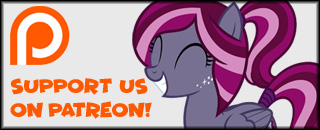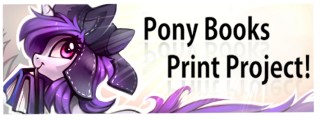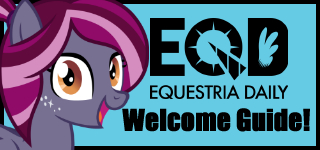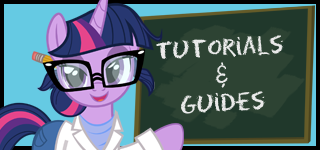Welcome to part of Equestria Daily's Interview with Bobby Curnow! In this installment we'll delve into some of Bobby's current non-MLP comic editing duties.
Instead of equine or human, surprisingly, those duties are very… reptilian.
You'll be able to find out all about those, as well as Bobby's time writing for IDW after the break!
How did you react when you got the assignment for editing Godzilla?
I was excited—I have vivid memories of seeing the 1985 movie on VHS when I was a kid. Godzilla is just full of great, visceral images, so there’s a lot of obvious appeal in Godzilla comics.
You've edited Kingdom of Monsters, Gangsters and Goliaths, Legends, The Half Century War, two different monthly ongoing Godzilla titles, and Cataclysm. Which one has stood out as the most enjoyable to edit?
I've enjoyed them all, but Half Century War is one of the books I want to be buried with. I loved that book, and James Stokoe, to pieces. That being said, I never thought I’d get anything as close to it in quality, but I think Cataclysm has come close.
But each book has its own strengths, and it’s easier to single out the mini-series. The ongoings are a tough grind, deadline-wise, and I’m really impressed with both teams I've worked on. (I just handled the retail cover promotion for Kingdom of Monsters, so didn't really have any hand in that)
When editing Godzilla, do you enter a different mindset for editing that book, as opposed to Teenage Mutant Ninja Turtles or My Little Pony: Friendship is Magic?
Yes, definitely. Each book is very different in tone, and the fandoms are different, and are looking for different things. It's always tricky starting out a new book, and figuring out what works and what doesn't. I’m a couple years in at least on all three of those, so they are all pretty familiar to me at this point. But that can breed complacency as well, which is something to fight against.
Speaking of TMNT, what is it like working with Kevin Eastman (Co Creator TMNT)?
Before I even started working in comics, Kevin and Peter Laird were huge heroes in the industry for me. Kevin is a huge bundle of enthusiasm and graciousness. Such a friendly, easy guy— before we began, I worried that he would be some rock star diva, but then I met him and that was instantly dispelled. Really honored to call him a friend.
Who's your favorite TMNT character?
It's funny, a lot of what appeals to me about Applejack, a sense of trust, and leadership, and reliability, and all the pitfalls that come with those things, I also find in Leonardo. So I'd probably pick him, but this is really like asking a parent to pick their favorite child.
In addition to editing the main ongoing TMNT comic series, you've also edited every mini-series that IDW has produced. Which mini-series was the most fun to work on?
I'm proud of all of the mini-series, in that they've all been essential to the ongoing story we're telling with TMNT. That being said, there was a certain spark with Secret History of the Foot Clan—an excitement knowing that we were exploring something new in the TMNT mythos, and seeing it turn out so well.
How did the crossover between TMNT and Ghostbusters come about? Cause as far as unlikely but extremely fun crossovers go, that one was fairly high on that list prior to its announcement.
We already had both licenses at IDW, and GB writer Erik Burnham has worked for me on TMNT. Plus head TMNT writer Tom Waltz edits GB here, so there was just a lot of natural melding here internally at IDW. Erik and Tom had an idea, and off it went!
What was your favorite moment from that story?
Seeing the parallels in personalities between the two teams and just getting to see them talk and relate to each other a bit.
Would you be opposed to any future crossover possibilities?
I'm not naturally a big crossover guy. It's really easy to fall into the trap of just doing them because they'll get attention. However, if there’s a legitimate story to be told, I'm all for it.
Now in addition to your editing duties at IDW, you've also written two original titles which were published by the company. What can you tell us about Battle Beasts and Night of 1,000 Wolves?
Battle Beasts was a work for hire job, though one I'm proud of. The opportunity to work on it was presented to the company, and I had all the toys as a kid so I shouted “Me! Me! Let me write it!” I was really luckily to work with Valerio Schiti, a tremendous artist, before Marvel snatched him away. He's now working away on a little book called Guardians of the Galaxy with Brian Michael Bendis. I was the first person to give him a steady gig, so I feel kind of parental and proud of him!
Night of 1,000 Wolves was a creator owned project, and for a horror book about the origin of werewolves, was kind of personal to me. Dave Wachter, who I mentioned before, did the work, and did a tremendous job. Looking back on it, his visuals did much more for the story than my scripts, but that's okay with me!
How different is it working your own original titles at IDW versus working on titles that you don't own?
Very different. With a work-for-hire job you of course strive to do the very best you can, but when it's something that comes just from your brain, it becomes very personal. Which is a bit of a nerve-wracking experience to put it out in the world, but it's very rewarding. Getting the opportunity to tell stories that I want to tell is why I got into the business, so that's the primary thing that drives me. But work for hire gigs can be a ton of fun, and it’s nice to have a steady pay check too.
What advice do you have for anyone who is looking to break into the comic industry as a writer?
First, write every day. That's the most basic, and necessary, thing to being a writer. The idea of being a writer is appealing to many, but if you can't sit down and write every day, you're just not going to get good enough to go anywhere. At least, that's what I've observed, there are exceptions. The good news is that every day is a new opportunity to start. It's never too late.
Besides just getting a lot of pages under your belt, it's helpful to really study the medium and the craft. Comic books have similarities to other mediums, like films, but there's a whole lot that is unique just to them. So it's important to put the study in.
Lastly, becoming as familiar with art, and artists, is a tremendous boon, that will help your comic scripts immensely. Giving a shot at drawing yourself, even if it's crappy, will be a fantastic learning experience. You'll get a sense of what is possible, and what works well on the page.
Alright folks! Be sure to tune in next time for the continuing interview! Bobby Curnow! Be sure to check in with Bobby on the IDW forums! Then we'll see you back here in twenty-four!









































